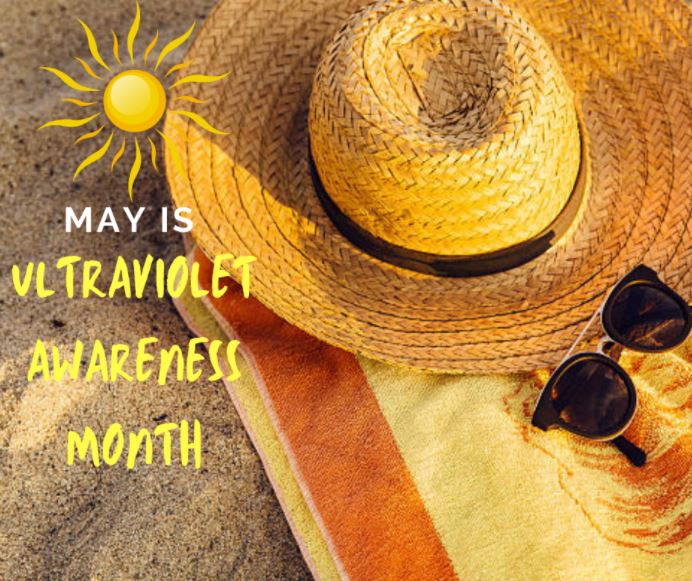Posted by: Central Florida Eye Specialists in Uncategorized


Summer is almost here, and while the sun will be shining bright, it is a golden time to highlight UltraViolet Awareness month. Prevent Blindness America sponsors Ultraviolet Awareness month in May to increase awareness of how UV rays can damage your eyes and hurt your vision.
We all love to take in those warm summer rays at the beach or enjoying any outdoor activity. However, everyone must remember to protect their skin and their eyes from the damaging effects of the sun. According to the American Academy of Ophthalmology, the sun emits radiation known as UV-A and UV-B rays, in which both types of UV rays can damage your eyes.
Who Is At Risk?
Every human being of any age and any skin pigmentation is susceptible to UV damage. It is best practice for everyone to wear the proper UV blocking sunglasses and wide brim hat to protect themselves from the damaging UV rays.
The American Academy of Ophthalmology targeted three types of patients who have to take extra precautions to protect themselves from the UV rays. Here are those patient types:
Do you have blue, green, or hazel eyes?
Patients with light-colored eyes need to make sure that they prioritize covering up with a hat and UV-blocking glasses to protect their vision. Some studies show that UV exposure and light irises may increase the risk of rare eye cancers, such as melanoma of the iris or uveal melanoma. In a survey conducted by the American Academy of Ophthalmology, 54 percent of people in the United States reported having light-colored eyes (blue, green, or hazel), but less than a third of them that light eyes are associated with greater risk of certain eye diseases.
Prescription Medicines
Some medicines that may increase your risk of UV sensitivity include:
- Antibiotics containing fluoroquinolones and tetracycline (including doxycycline and Cipro)
- Specific birth control and estrogen pills (including Lovral and Premarin)
- Phenothiazine (an anti-malarial)
- Psoralens (used in treating psoriasis)
- Photosensitizing drugs –
- Anti-inflammatory pain relievers – ibuprofen and naproxen sodium have also been shown to cause photosensitivity, though the reaction is rare.
Always discuss and tell your eye doctor which medications you are taking.
It is important to consult with your eye doctor and be aware of UV exposure hazards. Wearing your sunglasses can be the answer to saving your precious vision.
References: American Academy of Ophthalmology